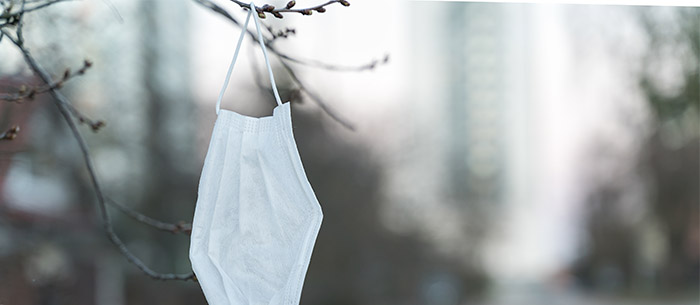Here in late 2021 with the Covid19 pandemic still hanging around, it is very common to see people wearing some sort of face covering, or mask, just about everywhere you go. Obviously, this is understandable. However, for someone intent on committing a crime, this gives them a distinct advantage as this person can cover their face without triggering alarm from potential victims. If that person is not apprehended during the commission of the crime, it may be next to impossible to later identify that person for prosecution.
Wearing a Mask Will Subject a Defendant to Greater Penalties
The Florida Legislature, way back in 1981, first recognized the difficulty in identifying and prosecuting criminal defendants who cover their faces during the commission of their crimes. In its current form, Fla. Stat. 775.0845, increases the potential penalties for those convicted of crimes while wearing a mask. There are no exceptions for the current pandemic.
Boiled down to its essence, any crime committed while the defendant was wearing a mask, a hood, or other device that concealed his or her identity will cause the crime to be reclassified to the next higher classification and to be ranked at the next level up on the Criminal Punishment Code. In other words, a second-degree misdemeanor becomes a first-degree misdemeanor, a first-degree misdemeanor becomes a third-degree felony, and so on and so forth.
The Item Does Not Have to Cover the Face for the Enhancement to Apply
While it may seem illogical, the statute does not require that the hood or mask cover the defendant’s face for the enhancement to apply. By the plain language of the statute, it is only required that the hood, mask, or other device conceal his or her identity.
In Clark v. State, 234 So.3d 809 (Fla. 4th DCA 2018), defendant Clark had entered an unoccupied residence with the intent to remove property that did not belong to him from the residence. Of course, this is a burglary. Upon exiting the residence, Clark had pulled his shirt over the back of his head (for those old enough to remember Beavis and Butthead cartoons, think of Cornholio, LOL). This action did nothing to conceal his face.
At trial, Clark’s attorneys argued that the mask enhancement should be dismissed as it did nothing to cover his face. The trial court and appellate court disagreed. In looking at the statute, they pointed out that it says nothing about face concealment, only concealment of identity. The court reasoned that:
Here, the defendant pulled a shirt over the back of his head as he walked away from the victim’s home, under the view of the victim’s surveillance camera. Viewing this evidence in the light most favorable to the state, it is reasonable to conclude that the defendant took this action to conceal his identity. As the trial court observed, many ways exist to identify an offender, particularly when the offender is known to a witness. Here, the victim personally knew the defendant because the defendant helped the victim’s husband with odd jobs around their home. The defendant, likely knowing the surveillance camera’s location from his earlier visits to the home, attempted to cover the only area of his body which would be visible in the camera’s view—the back of his head. As the trial court observed, a person like the victim who knew him well could readily recognize him on a video. So, the defendant, in order to conceal his identity from the victim, used his shirt to cover the back of his head. Such action constitutes competent, substantial evidence that the defendant violated section 775.0845.
As such, the Fourth DCA upheld the conviction with the enhanced penalties for concealment of identity.
So, if a person has been charged with a crime and they were wearing a mask for Covid19 mitigation, that offense could have much greater consequences. It is imperative to call an experienced criminal defense attorney who can help. Adam Bantner is board certified in criminal trial law and can help. Call today at 813.397.3965 to set up your free consultation.


